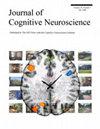建立和打破记忆链:奖赏预测错误整合与记忆分割模型。
IF 3.1
3区 医学
Q2 NEUROSCIENCES
引用次数: 0
摘要
预测错误会推动强化学习并将外显记忆组织到不同的情境中,但这些影响是否会相互影响呢?在这里,我们回顾了中脑多巴胺、神经节和海马在事件认知中的作用,提出并模拟了两种预测错误信号在整合与分割记忆事件中的理论影响。我们认为,有符号的奖赏预测错误可以建立奖赏环境的心理模型,增加具有更强、更稳定的奖赏预期的经历的情境相似性(整合)。另一方面,无符号的奖励预测错误则可能预示着一种新的环境模型,在与之交叉的经历之间产生情境转换(分割)。此外,我们还预测这些情境相似性的差异会产生不同的时序记忆模式。我们将这些想法结合到一个计算模型中,以解释一种看似矛盾的时序记忆模式,即更大的表征距离有助于情境内的时序记忆,但却会损害跨情境记忆。我们发现,模拟有符号奖励预测误差整合和无符号奖励预测误差分割可使模型执行联想连锁,这涉及重新激活两个测试探针之间的项目,以协助顺序检索。总之,我们的模拟为神经调节系统改变事件认知和记忆的各种方式提供了统一的解释。本文章由计算机程序翻译,如有差异,请以英文原文为准。
Building and Breaking the Chain: A Model of Reward Prediction Error Integration and Segmentation of Memory
Prediction errors drive reinforcement learning and organize episodic memory into distinct contexts, but do these effects interact? Here, we review the roles of midbrain dopamine, the locus coeruleus, and the hippocampus in event cognition to propose and simulate the theoretical influence of two prediction error signals in integrating versus segmenting events in memory. We suggest that signed reward prediction errors can build mental models of reward environments, increasing the contextual similarity (integration) of experiences with stronger, more stable reward expectations. On the other hand, unsigned reward prediction errors can signal a new model of the environment, generating a contextual shift (segmentation) between experiences that crossed them. We moreover predicted that these differences in contextual similarity give rise to distinct patterns of temporal-order memory. We combined these ideas in a computational model to account for a seemingly paradoxical pattern of temporal-order memory where greater representational distance helps order memory within context but impairs it across contexts. We found that simulating signed reward prediction error integration and unsigned reward prediction error segmentation differentially enabled the model to perform associative chaining, which involved reactivating items between two tested probes to assist with sequential retrieval. In summary, our simulations provide a unifying explanation for the varied ways that neuromodulatory systems may alter event cognition and memory.
求助全文
通过发布文献求助,成功后即可免费获取论文全文。
去求助
来源期刊
CiteScore
5.30
自引率
3.10%
发文量
151
审稿时长
3-8 weeks
期刊介绍:
Journal of Cognitive Neuroscience investigates brain–behavior interaction and promotes lively interchange among the mind sciences.

 求助内容:
求助内容: 应助结果提醒方式:
应助结果提醒方式:


